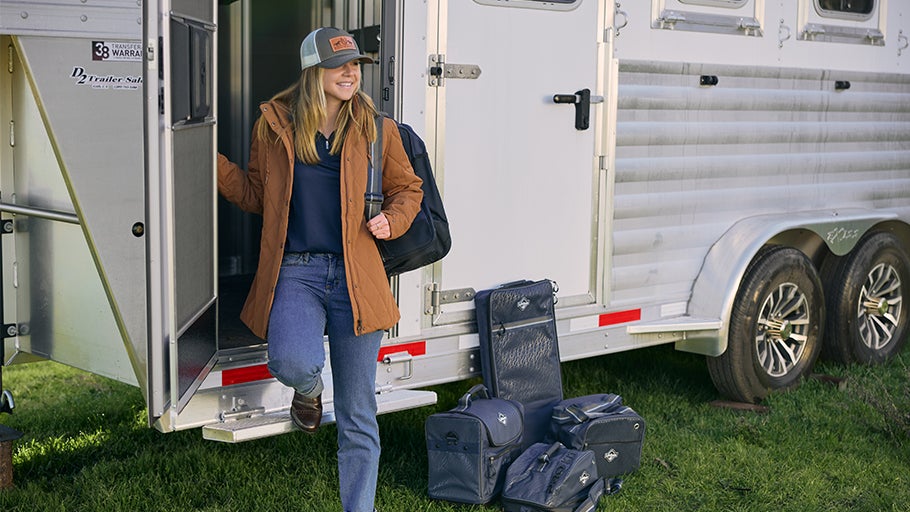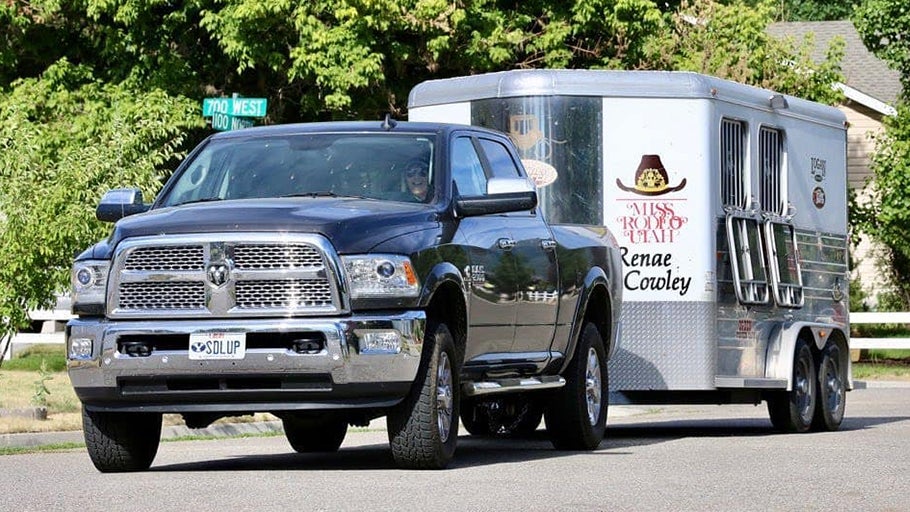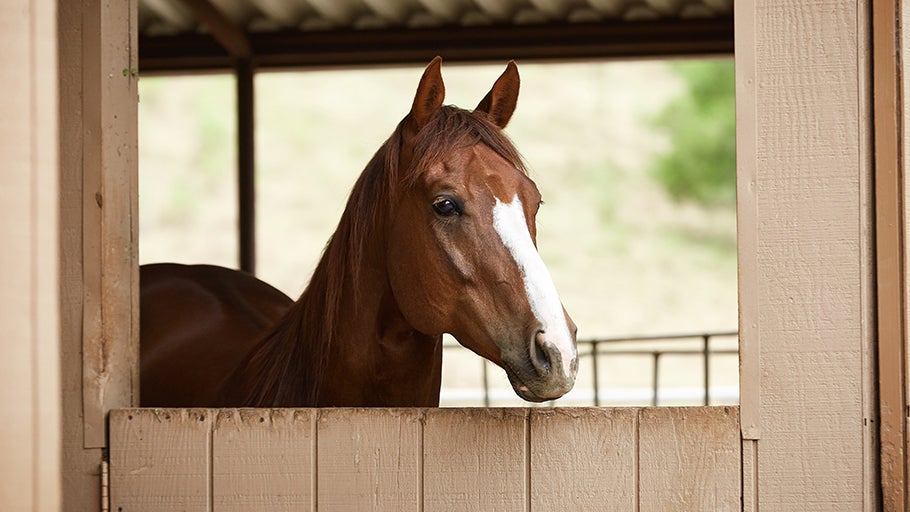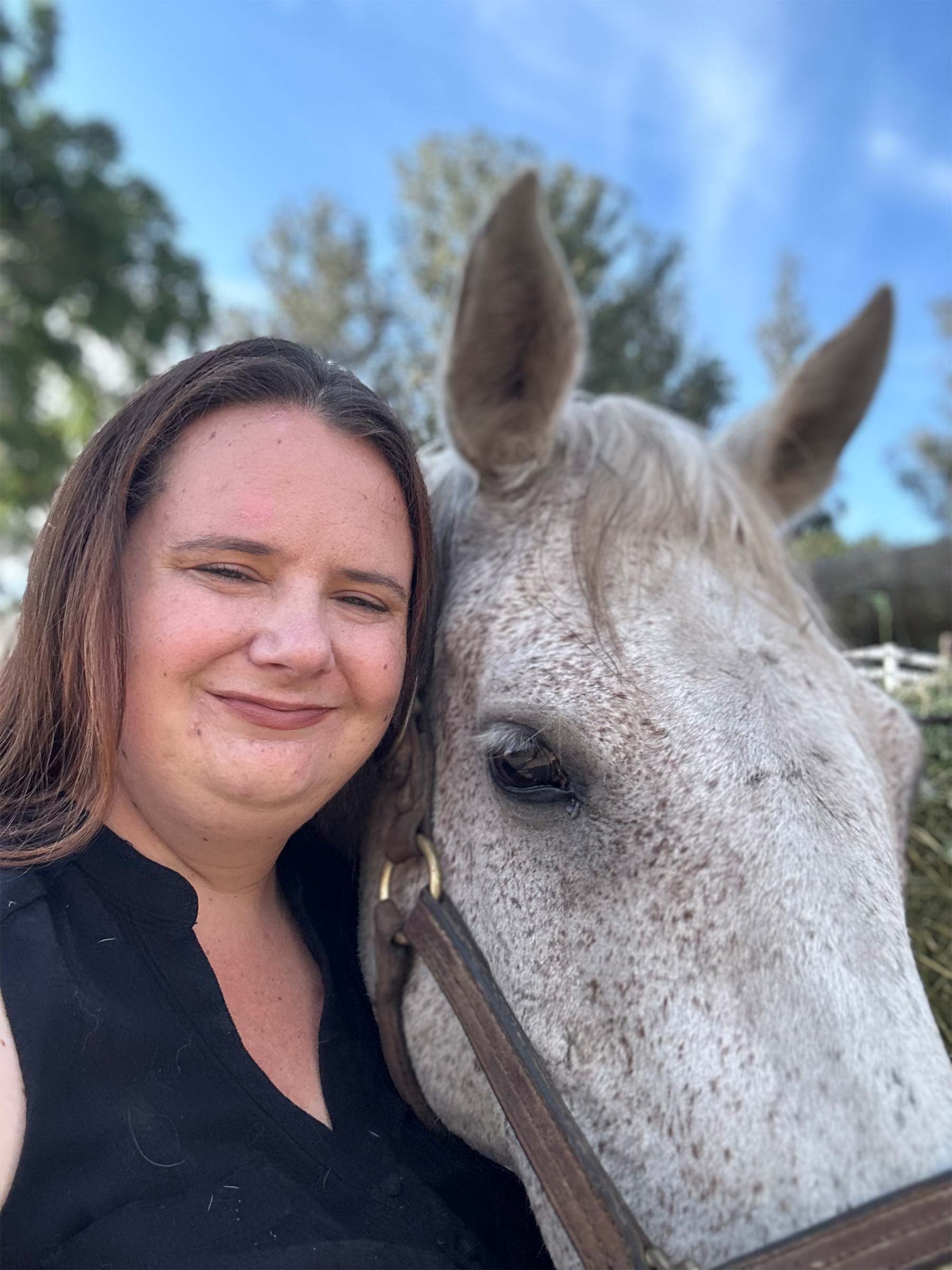
Horse Trailer Safety & Maintenance Tips
It's time to buckle up and hit the road with your equine companion! Whether you're heading across town or over state lines, it's imperative you are prepared for a safe journey. There are many factors to consider when traveling with your horse, including prepping both your horse and horse trailer for the miles ahead. In this article, Riding Warehouse's travel-savvy team of expert equestrians will go into detail about how to make each trailer ride a successful one. Read on for tips and tricks, including everything from planning your drive to making sure your trailer is in tip-top shape and so much more!
Planning for the Drive
Route Planning & Breaks
The first step to any successful adventure is careful route planning. Even if you plan to use travel apps and maps on your mobile device, check the route beforehand so you are familiar with it and know what to expect. Though often handy, these maps may end up taking you through the center of a big city, which you may want to avoid with a trailer in tow! You'll want to be sure your routes are as trailer friendly as possible. Knowing when and where you'll be stopping for gas and rest will also help in the long run. The fewer surprises or last-minute decisions, the better!
As a rule of thumb, trips three hours and longer are considered long-distance trips. This time threshold is when you need to start considering taking a driving break to give your horse a chance to rest. Staying balanced in the trailer is hard work for your horse, so having a chance to stop and stand still is crucial. Taking a break as you pull off the road to stop for gas is a great opportunity to give your horse time to rest, as well as to offer them a drink of water! These breaks don't need to be overly long; even just stopping for 15 minutes should do the trick. Keep in mind that for every mile you drive, your horses use as much energy balancing as they would use walking a mile without a rider. For every full day of travel, horses will need a day of rest after the journey to recuperate.
Driving
Before you hit the road, it's important to adjust the mirrors on your vehicle so you can clearly see past your trailer. Take your time on the road, and give yourself plenty of time to reach your destination. It is always safer for both you and your equine travel companions to drive slower than you think you need to. Give yourself more room to stop than you normally would in your car or when not towing, and keep in mind that it will take longer to accelerate too. You will also need to make wider turns and avoid sudden or hard braking whenever possible. Remember, your horse is in the back and is relying on you for a smooth, safe ride!
If you are new to driving a horse trailer, it's a good idea to first practice driving one without a horse loaded until you are comfortable with the trailer behind you. Getting a hand from a friend experienced with trailering can be a great help as you learn too, whether it's on a practice drive with no horse or on your first drives with your horse in the back.
Multi-Day Travel
While you're planning your long-distance trip, look into overnight accommodations for you and your horse. There are many horse motels and places available to let your horse rest, along with a variety of resources to help you find the right spot—including apps and equine travel websites. Some factors that you may want to look into include how far the location is from your route, the accommodations offered, and exactly what amenities are included in the stay.
Once your road trip hits the twelve-hour mark, it's time to plan on making an overnight stop at a horse motel to give your horse (and you!) sufficient time to rest. It is recommended that horses are unloaded from the trailer and rested for a minimum of eight hours after traveling for up to twelve hours.
Horse Safety
Loading in the Trailer
The best time to work on getting your horse comfortable with loading in the trailer is before any travel plans. Taking the time for trailer loading practice sessions with horses who need it will provide a calmer environment to practice in.
It's also important to take into consideration exactly where each horse in the trailer is going to ride. The location in the trailer and order in which you load each horse depends on several factors, including the temperaments of the horses and your trailer's setup. You'll want to be sure the trailer is both balanced and organized in a manner in which all the horses get along! For example, in a slant-load trailer, the heaviest horse should be loaded first in order to keep the trailer balanced. If you are using a straight-load trailer and traveling with only one horse, they should be loaded on the driver's side.
The order in which horses are loaded is also dependent on their temperaments and any herd dynamics between the equines traveling together. It's important to leave space between incompatible horses or individuals who you already know do not get along. Think kickers and stallions; these horses should be loaded in the rear stalls, ideally with an empty stall left between them and their travel companions.
Pro Tip:
Apply Vicks VapoRub just on the outside of the nostrils of stallions or colts before they load into the trailer. This will help mask the scent of any other horses - namely the fillies and mares you don't want them noticing!
Travel Documents
If you are planning on taking a trip across state or international lines, your horse will require health documentation for the journey. Some of these documents are even required when traveling to a new boarding facility or competitions. For interstate and international travel, you will need to have a Coggins and a Health Certificate on hand for each horse. Both of these documents are obtained from your veterinarian. It is also never a bad idea to have a copy of your horse's vaccination history at the ready just in case too!
Coggins
A Coggins is a form that shows the results of a blood test for Equine Infectious Anemia (EIA). The result of the test must be negative, and a positive test will result in further ramifications that will need to be addressed with your veterinarian. Depending on where you are going to, the Coggins must be dated within six months to a year of your travel date. Be diligent and check the specific state's requirements so you can be sure to have an up-to-date Coggins! We recommend having your vet see your horse to get the testing process started at least a week before you are set to depart (if not earlier) to be sure that you have enough time to receive the necessary documentation back from the USDA-accredited lab and your veterinarian.
Health Certificate
The Health Certificate must be dated within 30 days of travel and is also obtained from your veterinarian. This document shows that the horse has recently been evaluated by your vet for any signs of illness and verifies their health and suitability to travel. Different states have different requirements for what must be specified on the health certificate. For example, some states will require your veterinarian to require an entry permit number from their Department of Agriculture. Common information included on Health Certificates includes your horse's name, age, breed, color, and any distinguishing features, as well as their temperature at the time of issuing and their Coggins test results. Your vet will also need to include the method of transport, the transporter's contact information, as well as both the addresses of where the horse is departing from and going to.
Horse Health Factors
As it can be for us humans, travel can be stressful for our equine counterparts! Stress can be caused by being separated from the herd, increased noise, a disrupted schedule, and standing in one spot for long periods of time. As horses become more accustomed to traveling in the trailer, the experience can become less stressful. Regardless, we highly recommend having a fully stocked equine first-aid kit packed safely in the trailer whenever you travel with your horse.
Increased stress is correlated with higher levels of cortisol, a stress hormone, which is known to cause a decrease in the function of the horse's immune system. This leads to an increased risk of illness as horses travel and also raises the risk of colic. Prevent stress through proper training, a smooth drive using a suitable vehicle and driving technique, and regular rest stops on the road. Reducing stress can also help prevent health risks like shipping fever and gastric ulcers.
Shipping Fever
Shipping Fever is a bacterial pneumonia that horses can contract during travel, especially over long distances. Symptoms include lethargy, coughing, nasal discharge, and an elevated temperature. Fortunately, this respiratory disease is often easily treatable with antibiotics. If you suspect your horse has fallen sick after travel, call a vet for evaluation and treatment. Knowing what is normal for your horse will go a long way in helping to identify symptoms right away.
Help prevent Shipping Fever by reducing dust by moistening shavings, moistening hay, and providing sufficient ventilation from windows and overhead vents. In summer months, open the overhead vents or face them forward to move air to the top of the trailer to reduce inside temperatures. In addition to having a decreased immune response caused by elevated cortisol levels during travel, horses can also contract Shipping Fever by being tied too short in the trailer. Horses have better airway clearance when their head can drop below the point of their withers; if possible, tie them long enough to allow for this or leave the horse loose in a box stall.
Gastric Ulcers & Colic
The stress of travel can increase your horse's risk of colic, as well as make them prone to contracting gastric ulcers. Factors like decreased grazing time, more time spent stationary, and of course stress can have a negative impact on your horse's gut health.
Fortunately, there are a few steps you can take to help protect your horse's tummy on the road. We highly recommend starting your horse on a gastrointestinal buffer or digestive supplement in the days leading up to your departure to help support their gastrointestinal system. Bringing hay (especially their usual hay from home) along for your horse to snack on in the trailer can also help protect sensitive stomachs and alleviate stress.
Allowing your horse to get out of the trailer (or their stall upon arrival) to graze will support gut health and keep things moving. Ensuring your horse drinks plenty of water will also aid them on their travels. To help your horse stay hydrated, we recommend providing electrolytes on the road to encourage them to drink more water.
Outfitting Your Horse for Travel
Equestrians often have different preferences on what gear they outfit their horses with for travel. Some may simply put on their horse's halter and be ready to go, while others may prefer to use trailering protective gear like shipping boots or wraps, shipping halters, and more. Whatever you choose to use, it is good practice to be sure your horse is comfortable in what they will be wearing; they shouldn't have their travel gear put on for the first time when they are being loaded in the trailer.
In addition to personal preference, some factors that may help determine what your horse wears in the trailer include the length of the trip and your horse's habits as they travel. If you are shipping the horse with a professional transport company, you may also want to send your horse with some form of identification on them (such as a name plate or tag attached to their halter).
Horse Trailer Maintenance
Keeping your trailer in the best condition possible is an essential part of any road trip you take with your horse. To ensure your horse trailer is ready for safe travel, it is good practice to do regular and thorough maintenance checks, as well as follow consistent protocols in preparation for any journey. While some of these practices should be done every time you load your horse into the trailer, others should be done on a regular or routine cycle. Of course, cleaning your trailer regularly will go a long way in making sure it is in tip-top shape. In fact, we highly recommend cleaning out any manure and urine from your trailer after every trip!
Before Every Trip
Prior to every journey you take with your horse, there are specific things to double-check on your trailer before you hit the open road. This includes checking your trailer's turn signals, brake lights, tires, door latches, and more. The list below is a handy reference for everything that you should make sure is in working order before each horse trailer ride.
Turn Signals: Once your trailer is hooked up to a towing vehicle, take the time to make sure your turn signals and emergency flashers are all working. It is especially helpful to have a friend take a look at the signals as you turn them on so they can tell you what is working.
Brake Lights: As you would with your turn signals, it's important to make sure your brake lights do indeed come on when you hit the pedal in your vehicle. Again, this is where having a friend helping comes in handy, as they can let you know whether the brake lights are working.
Working Brakes: Once you have your trailer hitched to the towing vehicle, and before loading any horses inside, be sure to check that the braking system is working properly before you get started driving down the road with your horse.
Tire Integrity: Take a look at each of your trailer's tires to ensure they are in good condition. Keep an eye out for anything that may have gotten stuck in them, cracking, or other damage. It's also important to inspect the tread, which should be at least 1/4". Keep in mind that tires should be replaced every five years. Be sure to have a spare tire on hand that is in good condition in case of emergency.
Wheels: Make sure that lug nuts are tight and that ball bearings are in good condition and secure. One of the last things you want is one of them coming loose as you are cruising down the road!
Hitch System: Take a moment to do a visual once-over of your coupler and hitch to make sure everything fits securely and is in good condition. This is a great time to ensure that your safety chains are strong and in good working condition as well.
Wheel Chocks: Though used when the trailer is not in motion (and especially when it is not hooked up to a vehicle), be sure that your chocks and other equipment are in good condition. This will ensure that they are able to do their job when the time comes.
Latch & Door: It may seem obvious, but ensure that your trailer doors close completely and smoothly, and double-check that the latch also fully closes and safely secures the doors. Again, this is a simple check that can save a lot of heartache if done before a journey begins.
Windows: Windows should be in good condition when you travel. Check your windows and screens to ensure they can open and close as needed.
Overall Integrity: As you take note of all the features listed above, keep an eye on the overall integrity of the trailer. Make sure there are no sharp edges or corners, or any loose parts that could become potential safety hazards to you or your horse.
Regular Inspection & Professional Maintenance
While it may not be necessary to check absolutely everything every single time you use your trailer, there are several aspects of trailer care to be aware of and regularly maintain for safety. These include taking a look at the trailer's frame, electric and wiring, and flooring. Make sure there is no cracking, rusting, or other damage to the trailer's frame. Also take a look at all the wiring to ensure it's intact, working, and not exposed. Inspect the flooring for signs of corrosion, rotting, or damage. This will involve removing bedding and mats and doing a careful inspection.
Having your trailer serviced is a great opportunity to take care of aspects of your trailer that you may not be able to, plus servicing gets another pair of eyes on the trailer to ensure it is in the best shape possible. We highly recommend having your trailer professionally serviced annually. These service checks often include an inspection of the frame, axles, suspension, wiring, and brakes. This is also a great time to repair any rusted metal or broken/worn parts and rotate tires.
Frequently Asked Questions
Are there any services I can subscribe to for roadside assistance as I travel with my horse?
Like there are for regular vehicles, there are absolutely services that you can subscribe to should you find yourself in a pickle while on the road with your horse. We recommend doing a little research to see which service works best for you, but there are many to choose from, such as the USRider Equestrian Motor Plan, USRoper, and EquiPro Roadside.
I can feel my horse moving around in the trailer. Is there a way I can keep an eye on them throughout the drive?
Yes, of course! There are a variety of horse trailer cameras available that can be hooked up inside, so you can keep an eye on what your horse is doing in the trailer while on the road. Trailer cameras can be quick and easy to install, plus they are perfect for giving you peace of mind.
What should I do in case of an emergency while my horse is in the trailer?
Unfortunately, accidents can happen on the road no matter how prepared you are. Should you experience an accident while traveling with your horse and trailer, it is important to remember to stay as calm as possible and take a moment to take stock of the situation. Then, take the appropriate steps to begin to address the situation, which may include calling 911 or your equine roadside assistance service. Each situation is different, and the number one thing to remember is to keep yourself safe. If possible, pull your vehicle off the road and to a quiet area.
When assessing your horse's health, it is best and safest to do so through the closed windows. Opening your trailer doors or windows may create an even more dangerous situation. Though it might go against your initial instincts, it is highly recommended to not unload your horse roadside if it can be prevented. Should they need medical attention, call a nearby veterinarian to explain the situation, and if possible, drive to a nearby veterinary clinic for further treatment or evaluation. The most important rule of thumb in roadside emergencies is to keep as cool a head as possible to keep the situation as safe and controlled as you can.
Closing Thoughts
Though it can absolutely be an exciting and fun time, traveling with horses is a multi-faceted adventure. It takes a lot of work; from carefully planning routes, getting your horse comfortable in the trailer, to making sure your horse trailer is in proper shape for travel. We hope that this article provided some helpful tips and tricks for your next equine adventure, so you can feel prepared for the ins and outs of traveling with horses. Should you have any additional questions, our helpful customer service team is always happy to assist via phone at 1-800-620-9145 or via email at info@ridingwarehouse.com. Happy trailering!
Related Articles



























